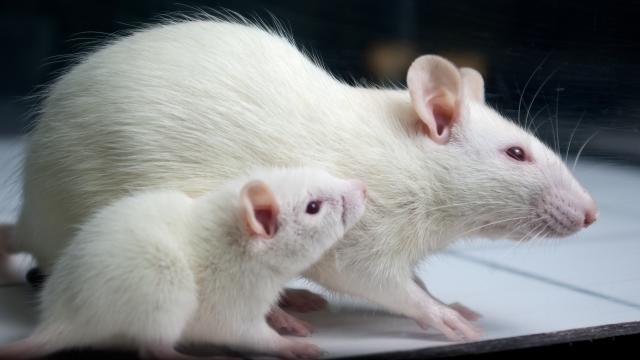Despite the current Silicon Valley hype, infusing yourself with the blood of a 16-year-old is probably not going to make you live longer and fix all that ails you. It’s also likely dangerous, because while blood transfusions are necessary for the sick and injured, they also come with side effects.
However: the blood of younger people and animals does have properties that make it intriguing, and scientists continue to study the ways in which it might be useful (in animal models and in humans). In the latest study, published Thursday in the the FASEB Journal, a team of researchers reported that blood plasma from young rats reduced a type of liver injury in older rats, called ischaemia-reperfusion injury.
Ischaemia-reperfusion injury is the tissue damage that can occur when blood supply (and, consequently, oxygen supply) is temporarily cut off to an organ. It can be a complication after liver surgery or liver transplant, and risk increases with both older patients and older livers.
The researchers treated six older rats with plasma from young mice, and six older rats with plasma from older mice. They temporarily cut off the blood supply to the rats’ livers, and then examined the livers six hours later.
The rats that received the young blood treatment had reduced signs of liver injury and lower levels of enzymes that signal liver damage, signalling that the serum had reduced the damage associated with the restoration of oxygen-rich blood flow.
Treatment with young plasma also restored autophagic activity in the liver, which deteriorates with age. Research suggests that the cellular process of autophagy, where cells break down and digest old proteins, organelles, and other types of cellular waste, might protect against these types of reperfusion injuries — offering a potential reason for the young blood’s efficacy in these cases.
The team had previously reported that young plasma restored autophagic activity lost during ageing in rats, and that it also improved liver function.
Michael Conboy, a bioengineering researcher at UC Berkeley who was not involved in this study, said that this research is a good addition to the growing volume of studies on the benefits of young blood. The new findings bolster previous research by Conboy, which explored the benefits of exposing older mice to the blood and blood serum of younger mice and found improvements in the activity of liver cells.
While the benefits of young blood remain controversial, Conboy said that the incremental process of science is expanding our grasp on what it actually can do. “Over the past few years, a few more papers have been published, and now it gets kind of interesting,” he said. “The scientific method is working, and other people are studying this and reporting results. With many people doing this kind of experience, it supports previous work more, and we get a better understanding.”
He noted, though, that it’s important to remain clear-eyed and sceptical, and not to overhype the research as it continues to progress. While accumulating evidence is promising, there’s still a long way to go. “We’re still on the early part of the steep slope,” Conboy said.
